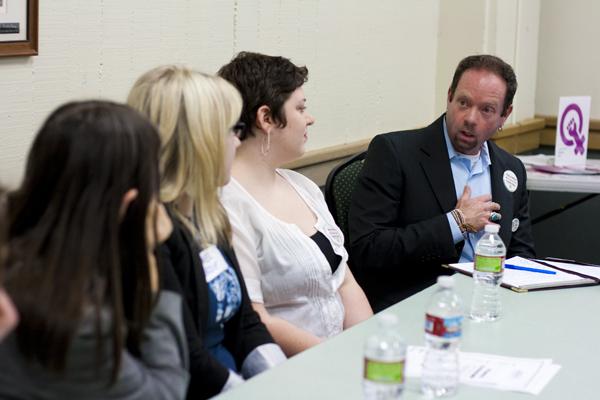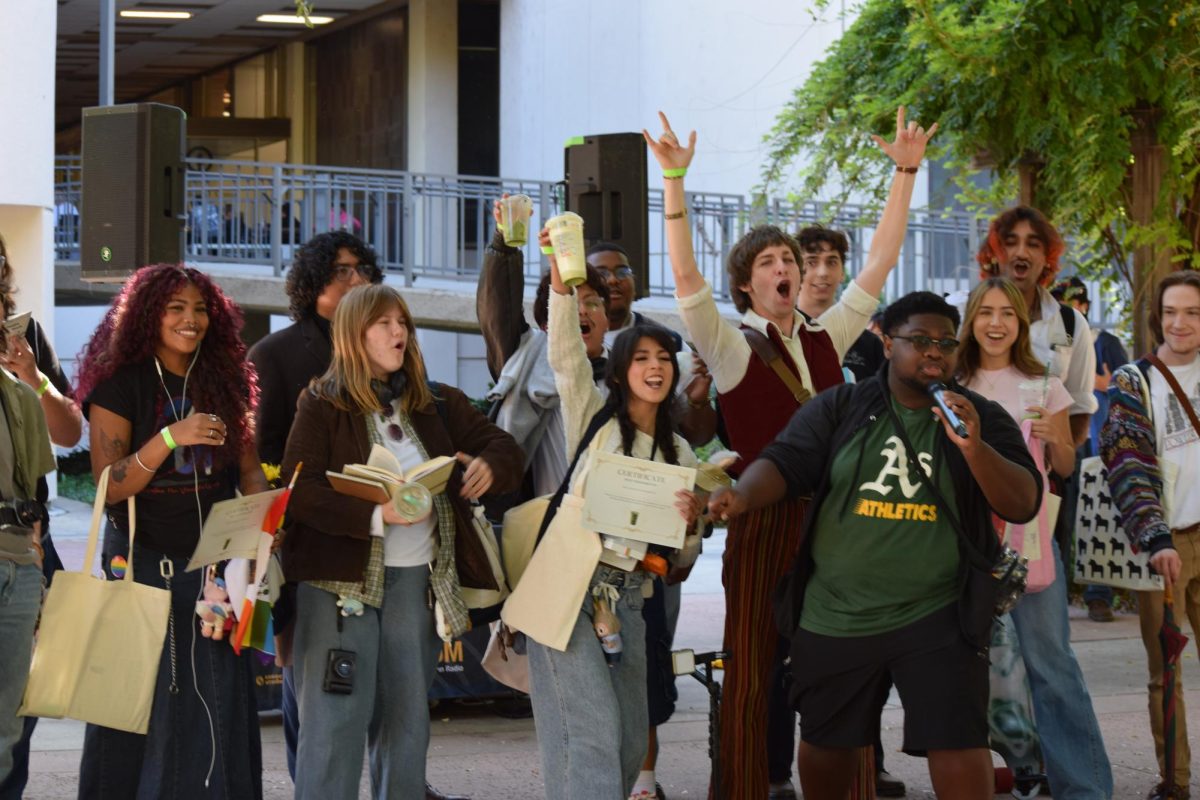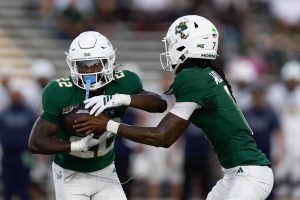Students, faculty discuss the F-word

fword:Matt Huckabay, executive director of The Center for Violence Free Relationships, thanks women’s studies professor Vicki Hall for her involvement in the 1970s feminist movement, which paved the way for the rights of women today. :Tina Horton – State Hornet
March 8, 2010
It was all about the F-word in the California Suite of the University Union today.
In collaboration with Student Organizations and Leadership and Hornet Athletics, the Women’s Resource Center hosted The F-Word Panel as part of Sacramento State’s month-long celebration of Women’s Herstory Month.
Lynnzi Brent, coordinator of the event and co-coordinator of the Women’s Resource Center, said despite this event being the first one they have ever held on campus, she has “tried for years” to have one.
At the panel, guests shared their life experiences that led to their personal views on feminism. Panelists include students, professors and members of feminist organizations.
Alumna Jenny Lawrence said feminism had inspired her to be herself and come out of the closet, something she had resisted while playing soccer for Sac State.
“You live in a bubble and you have to live up to certain things in that bubble,” she said. “Feminism is not even about fighting for equality. It’s about fighting for the right to be yourself.”
Much of the discussion was focused on the effects of negative stereotypes of feminism.
Vicki Hall, who has been a professor of women’s studies at Sac State for 40 years, said negative stereotypes were created as a defense against fear of change. However, she acknowledged the steps the women’s movement has taken in spite of the feminist stigma.
“Things have become more acceptable, because people have paved the way,” she said. “It really is an honor and a privilege to be a feminist.”
Hall garnered some respect from her fellow panelists. Matt Huckabay, executive director of the Center for Violence Free Relationships, expressed his “deep, deep appreciation” to Hall.
“Women like you have made my agency possible,” he said.
Huckabay, the only male panelist, also said that for the feminist movement to move forward, they must find a way to engage more men.
He credits much of this to the fact that he works in a primarily women-centric environment and deals with issues that are typically seen as women’s issues. He admitted being treated differently because of his gender.
“Who I am as a person and as a human being is rooted in feminism,” he said.
At the end of the panel, all agreed that feminism is still applicable in today’s society.
“For me, the “f-word’ is further,” said graduate student Rachel Pearman. “We’ve come so far, but we can go further with feminism. We need to make sure that we bring everyone along with us, because change doesn’t happen with only one community.”
Kalie Barnes-Young can be reached at [email protected].





























































































































